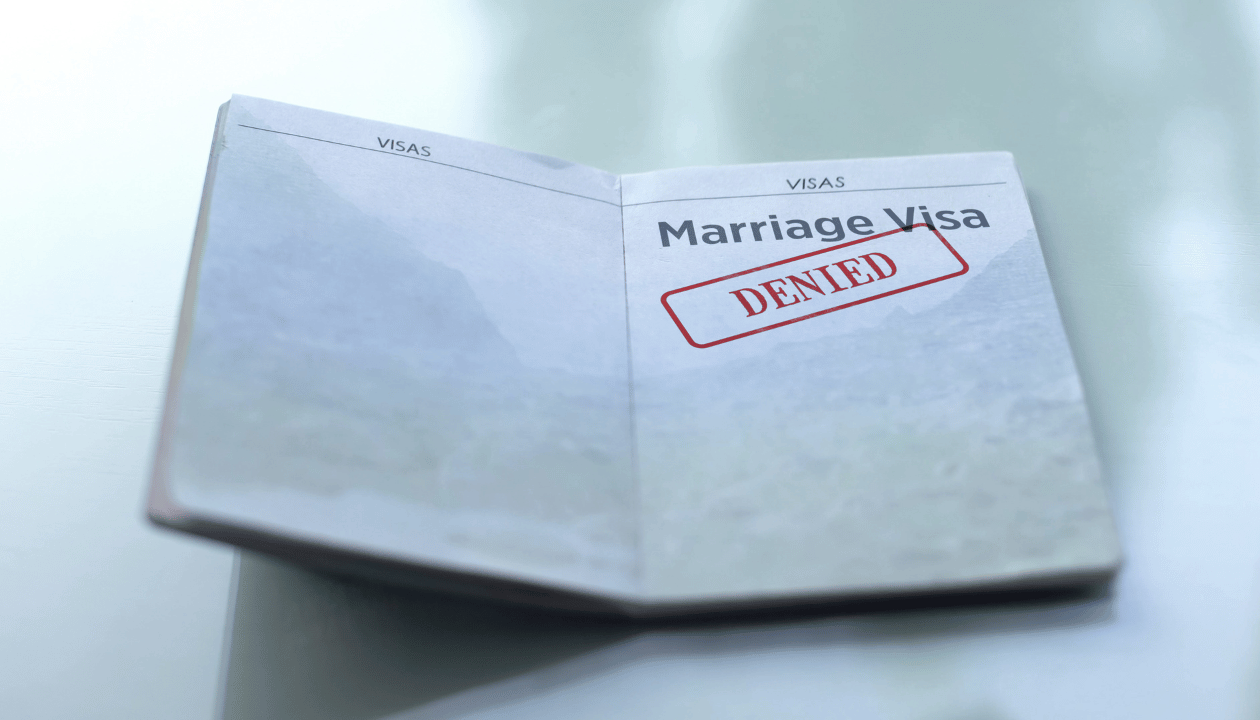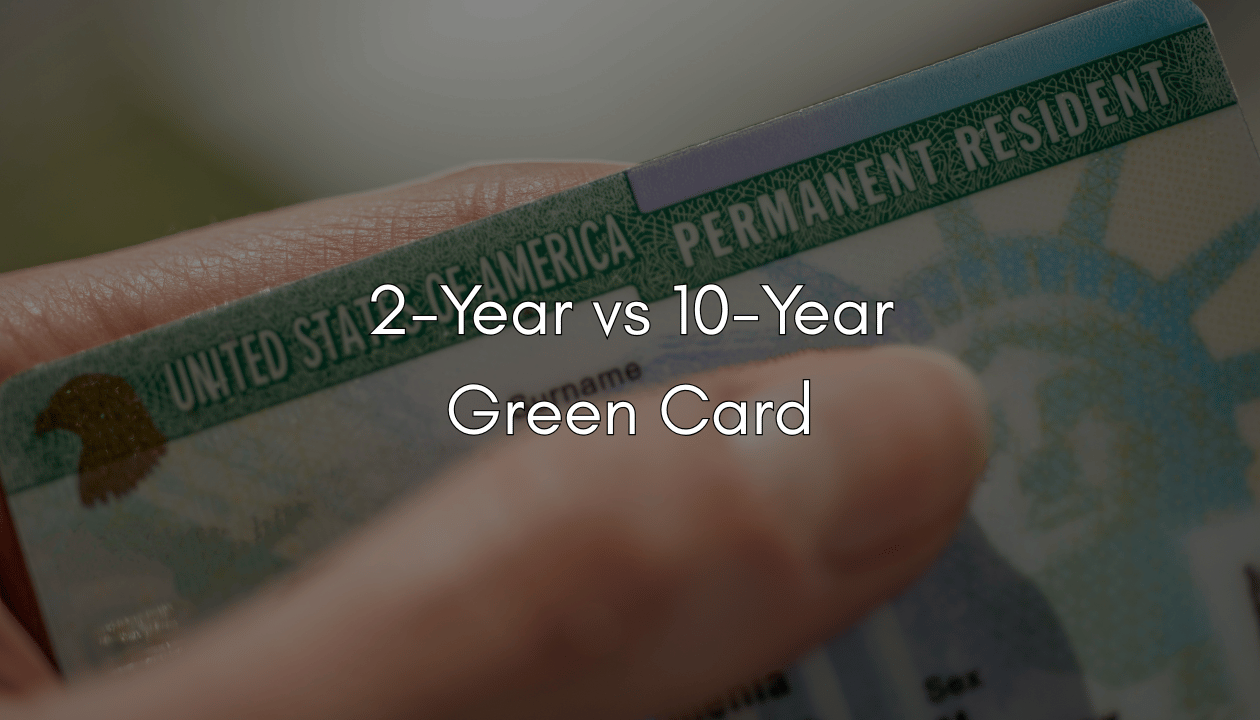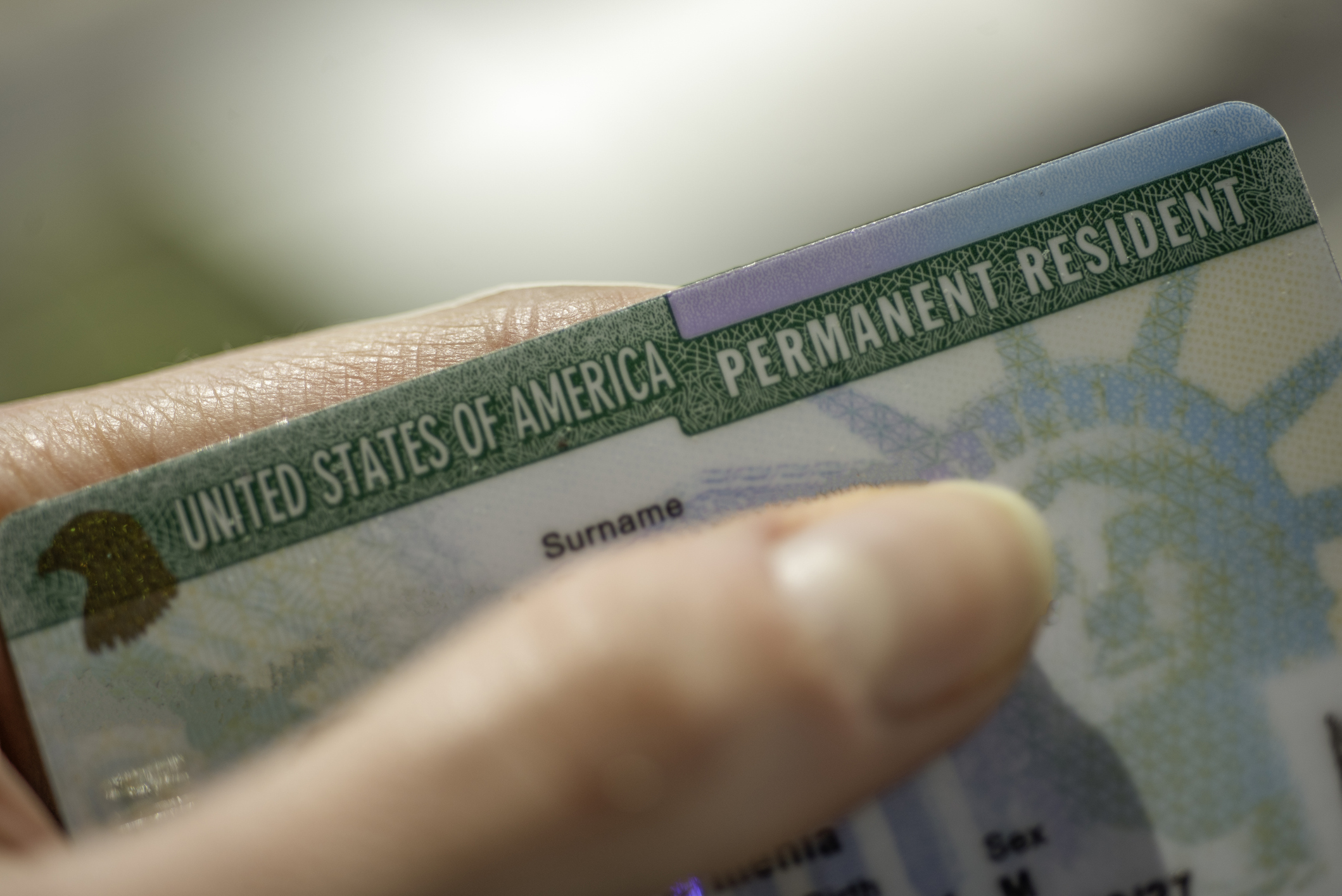Receiving a denial on your marriage-based green card application can feel like the door has slammed shut on everything you’ve worked so hard to build. For many couples, it’s more than a legal decision—an emotional setback that leaves you unsure of what comes next.
But a denial is not the end of your immigration journey.
In many cases, there are still paths forward—whether through a motion, an appeal, or filing again with stronger documentation. What matters most now is knowing your options and making smart decisions with the proper legal support.
At The Chidolue Law Firm, we help couples facing difficult immigration setbacks daily. If your petition was denied, we’re here to help you understand why and what you can do next.
Common Reasons a Marriage-Based Petition Is Denied
A denial doesn’t always mean your marriage is being questioned—but it often means the application didn’t meet the standards set by USCIS or the National Visa Center. Understanding why your case was denied is the first step toward building a stronger one.
Here are some of the most common reasons marriage-based applications are denied:
Lack of evidence of a bona fide marriage
If you didn’t provide enough proof that your relationship is real, like joint finances, shared residence, or other personal documentation, USCIS may question your intent.
Incomplete or inaccurate forms
Even minor errors or missing signatures can lead to rejection. Forms like Form I-130 and Form I-485 must be filled out completely and consistently.
Missed interviews or biometric appointments
Failing to attend a green card interview or missing scheduled appointments can result in automatic denials.
Inconsistencies in personal information
Conflicting details between your forms and birth certificates, passports, or marriage records can raise red flags.
Previous immigration violations or criminal history
A record of unlawful presence, a criminal conviction, or a history of immigration fraud can trigger denial, even in legitimate marriages.
Understanding the reason behind your denial will determine your next best step, and that’s where legal guidance becomes essential.
Understand the Type of Denial
Not all denials carry the same weight, and not all lead to the exact solutions. Before deciding what to do next, it’s essential to understand what kind of denial you’ve received.
Ask yourself:
Did USCIS inside the U.S. deny your application, or was it denied through consular processing abroad?
Denials from consular processing often involve different procedures and appeal options compared to domestic filings.
Was the denial due to missing documentation, eligibility concerns, or perceived fraud?
Some denials are procedural and can be corrected; others are more complex and may require an alternative legal route.
Did the denial come with a Notice of Intent to Deny (NOID), or was it a final decision?
A NOID allows you to respond before a decision is finalized, while a denial may require action such as refiling, appealing, or seeking a waiver.
Understanding the nature of your denial helps clarify your legal position and prevent costly delays or missteps. This is the moment to evaluate your case carefully and make informed choices about moving forward.
Option 1: Motion to Reopen or Reconsider
Suppose your petition was denied due to missing evidence, overlooked information, or a mistake in the decision. In that case, you may be able to file a Motion to Reopen or a Motion to Reconsider with USCIS.
These are not appeals—they are formal requests asking USCIS to review the same case again based on:
- New material evidence that wasn’t available when the decision was made
- An error in law or policy that led to an incorrect denial
Timing matters. Motions must usually be filed within 30 days of the denial. It’s also important to clearly explain why your case deserves another look—and to back it up with strong documentation.
This may be the right path forward if your case was unfairly denied or something critical was missed. But navigating this process without legal guidance can make things worse.
At The Chidolue Law Firm, we review denied cases carefully and help clients decide whether a motion gives them a real chance at approval.
Option 2: Appeal to the Administrative Appeals Office (AAO)
Sometimes, you may be eligible to file an appeal with the Administrative Appeals Office (AAO). This option is not available for all types of denials, and it’s typically reserved for denials issued by USCIS, not through consular processing abroad.
An appeal asks the AAO to review the original decision and determine if immigration law was applied correctly. But keep in mind:
- You must usually file Form I-290B within 30 days of the denial
- Your appeal must identify legal or factual errors in the original decision.
- The process can take several months or longer for a final determination.
An appeal may sound like the next logical step, but it’s not always the strongest. In many cases, filing a new petition or a motion to reopen is more effective than waiting on a lengthy appeal.
If you’ve received a denial and are unsure whether your case qualifies for an AAO appeal, we can help you assess your options quickly and confidently.
Option 3: Refile the Petition
Sometimes, the best way forward is to start fresh.
If your marriage-based green card application was denied due to missing evidence, technical errors, or a change in your relationship status, you may be eligible to refile the petition. This is especially common in cases where:
- The original application lacked sufficient supporting documents
- The marriage certificate or other required forms were incomplete or inconsistent.
- There were issues during the green card interview that could now be clarified
- You’ve resolved a prior immigration violation or updated your legal status
Re-filing allows couples to correct past mistakes and submit a stronger case, but it must be done thoughtfully. USCIS will be aware of the previous denial, so it’s essential to address what went wrong and demonstrate that your case meets all the eligibility requirements this time.
At The Chidolue Law Firm, we help families confidently rebuild their applications, carefully preparing every detail before submitting anything again.
Option 4: Explore Other Immigration Relief
In some cases, especially where the marriage has ended or involved abuse, refiling may not be the best—or safest—option. That’s when it’s essential to explore whether other forms of immigration relief may be available.
Here are a few alternatives to consider:
VAWA (Violence Against Women Act)
If you were in an abusive relationship with a U.S. citizen or lawful permanent resident spouse, you may be eligible to self-petition under VAWA. This path allows abused spouses to apply for a green card without the involvement of their abuser.
Cancellation of Removal
If you are already in removal proceedings and meet specific criteria such as long-term U.S. residence and good moral character, this may be a path to lawful status.
U Visa or T Visa
For survivors of serious crimes (U Visa) or human trafficking (T Visa), immigration relief may be available. These options often require cooperation with law enforcement and strong evidence of the harm suffered.
Asylum or Humanitarian Relief
Some individuals may qualify for asylum or other forms of humanitarian protection in minimal circumstances. However, these routes are highly particular and should be discussed with an experienced immigration attorney.
No two situations are alike. That’s why understanding your legal options with a trusted legal team is essential, especially if your case involves hardship, abuse, or unexpected life changes.
Why Legal Help Matters After a Denial
Getting a denial can leave you feeling like you’ve reached a dead end—but with the proper legal support, it could simply be a detour.
After a marriage-based denial, every next step must be calculated. Whether considering a motion, an appeal, or a completely new petition, each option has strict deadlines, legal nuances, and long-term consequences for your immigration future.
An experienced immigration attorney can help you:
- Pinpoint the exact reason your petition was denied
- Review your full immigration history for risks and opportunities.
- Decide whether to refile, appeal, or pursue a different form of relief.
- Give her more substantial, more credible evidence to support your case.
. - Handle communication with USCIS, the National Visa Center, or a consular officer on your behalf.
At the Chidolue Law Firm, we treat every denial not as the end but as a new beginning backed by strategy, strength, and compassion.
Let’s Talk About What’s Next for Your Case
A denied marriage-based green card application doesn’t mean you’re out of options—it just means it’s time to take a more innovative, strategic approach.
At The Chidolue Law Firm, we understand how much is riding on your case. Whether you need to file again, challenge the denial, or explore other immigration relief, our team is here to guide you with experience, compassion, and a clear plan for the future.
📞 Call us today for a case review:
➡ 407-995-6567
➡ 678-325-1037
💬 WhatsApp us at:
➡ 404-333-8751
You don’t have to face this setback alone. Let’s find the best path forward—together.



